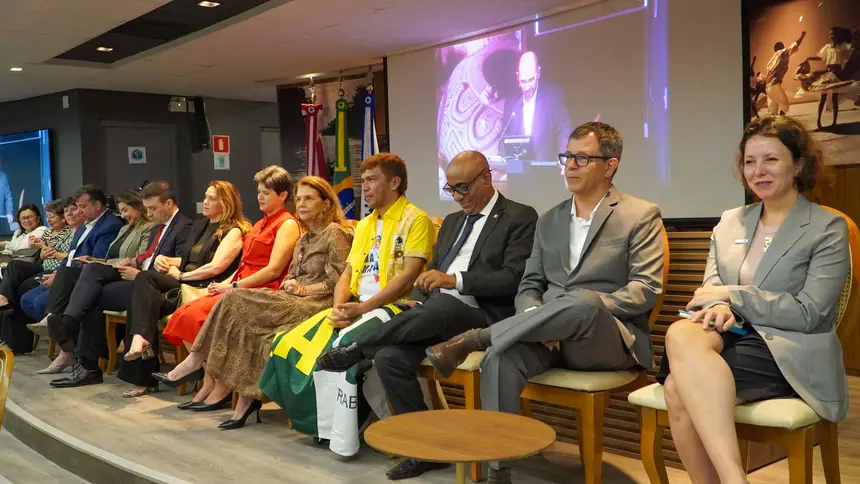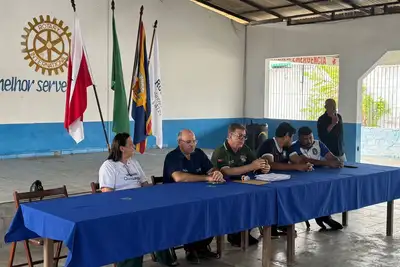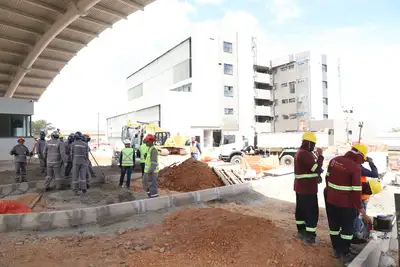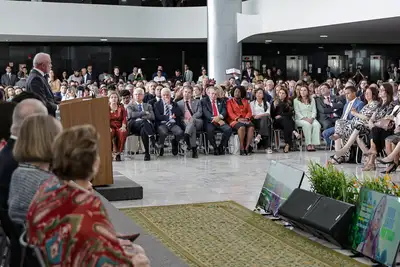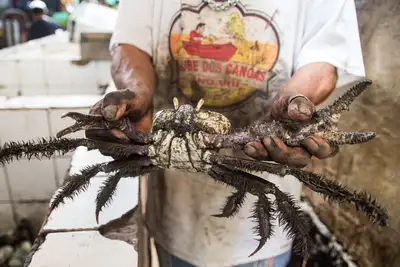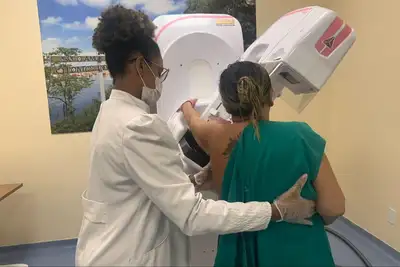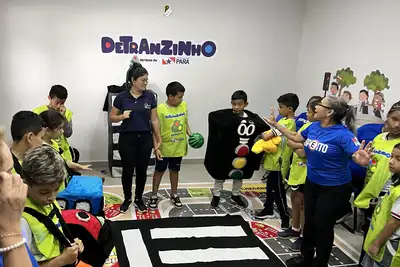Government of Pará commits to advancing education in Marajó
The ‘Interinstitutional Pact for Education in the Marajó Archipelago - 2025 to 2028’ was signed at the TCMPA headquarters in Belém
To reaffirm commitments for improvements in Marajoara education, the Government of Pará signed the “Interinstitutional Pact for Education in the Marajó Archipelago – 2025 to 2028” on the morning of this Monday (9), at the headquarters of the Court of Accounts of the Municipalities of Pará (TCMPA) in Belém. About 50 institutions that are part of the Office of Articulation for the Effectiveness of Education Policy in the Marajó Archipelago (Gaepe Marajó Archipelago) were present at the event, including representatives from the 18 Marajoara municipalities, universities, Public Prosecutors' Offices, and the State Government.
In order to support the development of research, studies, and training for the municipalities of Marajó and to develop joint actions aimed at overcoming the challenges faced in education in the Marajoara territory, the “Interinstitutional Pact for Education in the Marajó Archipelago – 2025 to 2028” guarantees technical-institutional support, the necessary support for the implementation of coordinated actions in the region in the field of education.
“Today is an important day for education in Pará. Together with the actions of the State Government, Federal Government, and the municipalities of Marajó, we can continue to advance in ensuring quality education for the schools in the Marajoara region, taking into account its challenges and particularities. This is a fundamental partnership that, together with the institutions that make up the Gaepe Marajó Archipelago, will strongly assist in changing the reality of education,” said Rossieli Soares, Secretary of State for Education of Pará.
The president of TCMPA, Lúcio Vale, highlighted the fundamental role of the Office of Articulation for the Effectiveness of Education Policy in the Marajó Archipelago (Gaepe Marajó Archipelago). “This involves more than 50 governmental and non-governmental institutions that make up the institutional governance model. The objective is to create a dialogue and cooperation forum among the entities, the public sector that operates in the educational field, and also civil society. The advances already achieved during this period include nearly eight thousand students returning to the classroom. Pará was the state with the highest return of halted works in education within the National Education Fund program, FNDE. I am sure that today we are taking a new step, we will be able to deliver more and more partnerships and provide even better quality education in the State of Pará. Education is a continuity. We need to continue this work, we need to deepen this work so that we can help the municipalities, the State Government, and the Federal Government to improve education in our municipality, our State, and our country,” he emphasized.
The TCMPA councilors, Mara Lúcia Barbalho and Ann Pontes, and the executive president of the Articule Institute, Alessandra Gotti, spoke about the advances achieved by the Gaepe Marajó Archipelago and those that will be undertaken in the coming years. Among the examples are: the return of more than eight thousand students to classrooms; Pará in first place in Brazil for the resumption of halted works in basic education; a 50% increase in federal transfers to Brazilian municipalities for riverine school transportation; and the implementation of a national program to qualify teachers working in multigrade teaching.






